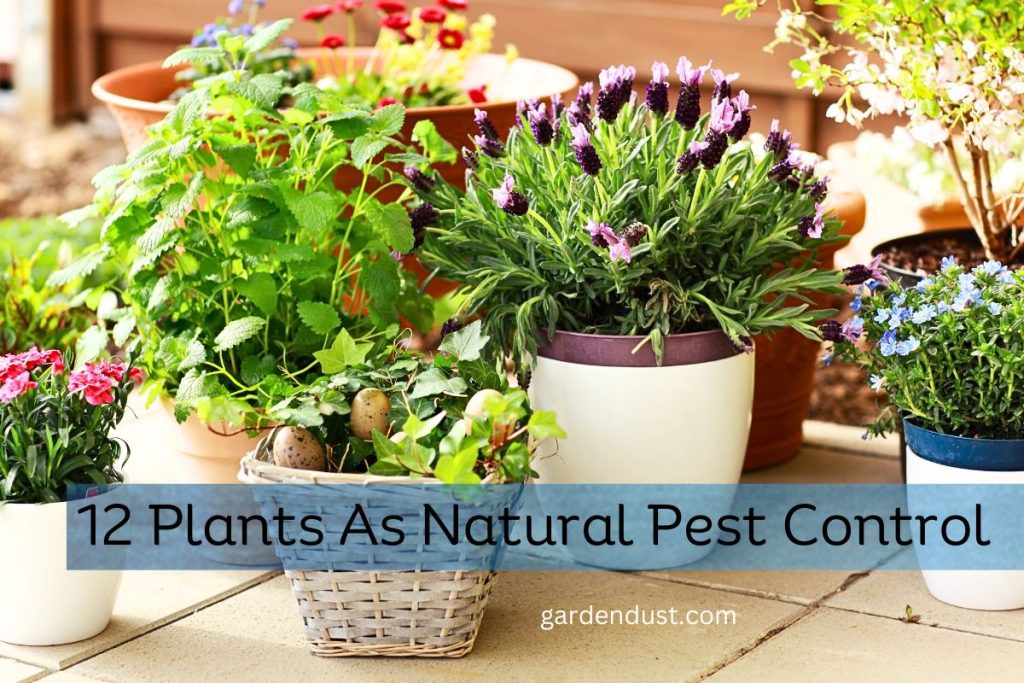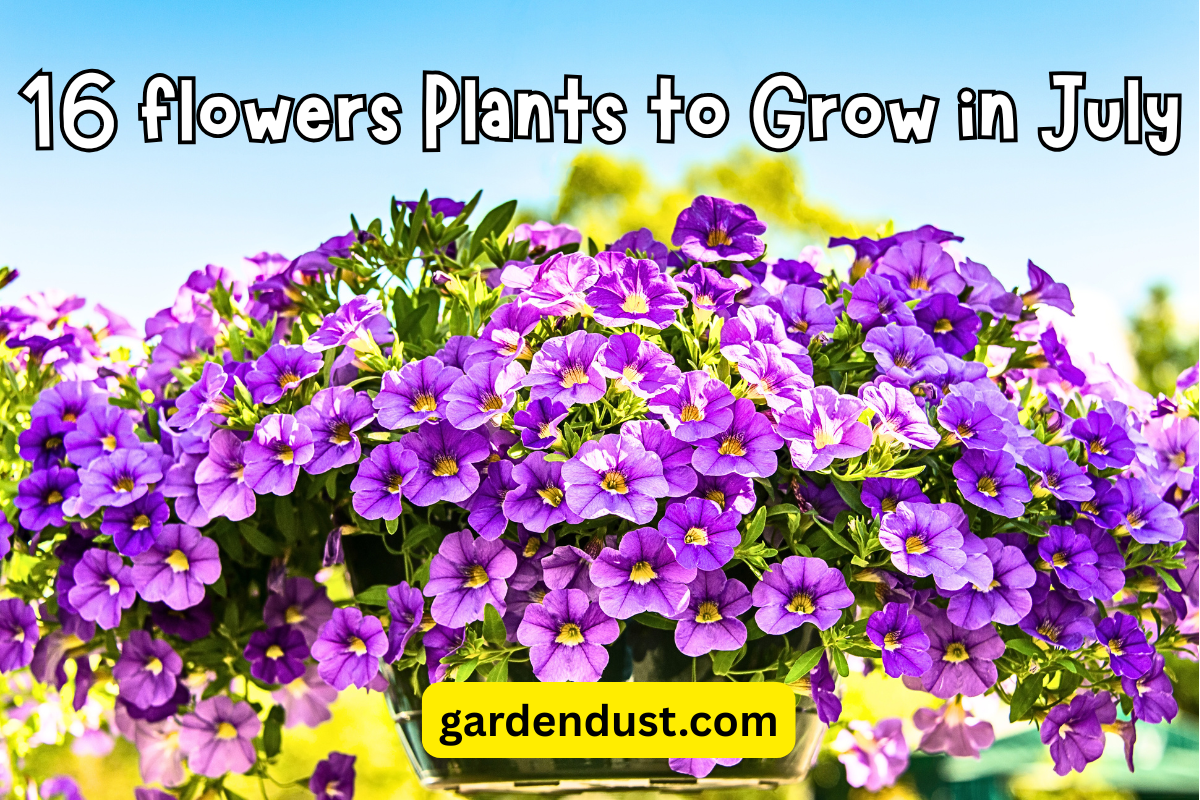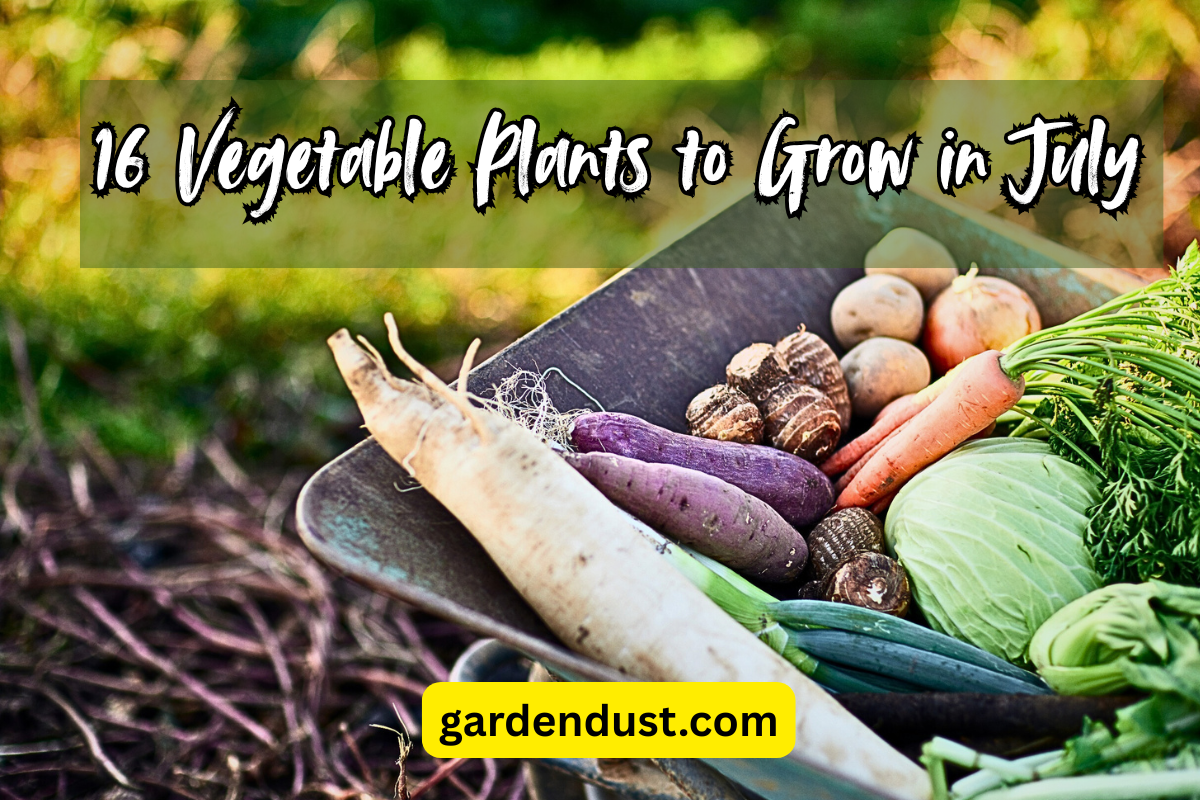Maintaining a thriving garden requires a delicate balance between nurturing your plants and managing pests. While chemical solutions may offer a quick fix, they can have adverse effects on the environment, beneficial insects, and even the health of your plants. Embracing natural pest control methods, such as incorporating pest-repelling plants, is an eco-friendly and effective way to protect your garden. In this article, we’ll explore 12 Beneficial Plants for Natural Pest Control in Your Garden that serve as natural defenders, helping to keep pests at bay and create a harmonious ecosystem in your garden. Lets start…
Natural Pest Control Plants –
1.Marigold (Tagetes spp.)
READ MORE:-7 Benefits of planting marigold
Marigolds are not only prized for their vibrant blooms but also for their ability to deter nematodes, small worm-like pests that can damage plant roots. French marigolds, in particular, release a natural pesticide from their roots, known as alpha-terthienyl, which is effective against nematodes.
2.Lavender (Lavandula spp.)
READ ALSO:-9- Uses Of Lavender Leaves
Lavender, with its fragrant blooms and soothing aroma, is a powerful ally in the fight against pests. It repels mosquitoes, moths, and fleas while attracting pollinators like bees and butterflies. Plant lavender near entry points to your garden or among susceptible plants for a natural pest barrier.
3.Basil (Ocimum basilicum)
Beyond its culinary uses, basil is an excellent companion plant for your garden. It repels mosquitoes and flies and is particularly effective against tomato hornworms and aphids. Interplant basil with tomatoes and other susceptible crops to enhance their growth and deter harmful insects.
4.Chrysanthemum (Chrysanthemum spp.)
Chrysanthemums contain pyrethrin, a natural insect repellent commonly used in organic insecticides. Planting chrysanthemums can help control a variety of pests, including mosquitoes, roaches, and ants. Be mindful that pyrethrin can also affect beneficial insects, so use chrysanthemums strategically in your garden.
5.Nasturtium (Tropaeolum majus)
READ MORE:-How To Grow And Care For Nasturtiums
Nasturtiums are not just visually appealing; they act as a natural trap for aphids, whiteflies, and squash bugs. These pests are attracted to nasturtiums, sparing your other plants. Additionally, nasturtiums release airborne chemicals that deter certain insects, acting as a protective barrier.
READ ALSO:-10 BENEFITS OF GROWING CHIVES IN YOUR HERB GARDEN
6.Rosemary (Rosmarinus officinalis)
READ MORE:-How To Grow And Care For Rosemary
Rosemary is a versatile herb with aromatic leaves that repel pests like mosquitoes, carrot flies, and cabbage moths. Its pungent scent masks the scent of neighboring plants, making it harder for pests to locate their preferred hosts. Grow rosemary in pots or intersperse it among susceptible crops for optimal results.
7.Chives (Allium schoenoprasum)
READ MORE:-How To Grow And Care For Chives
Chives, part of the onion family, not only enhance the flavor of your dishes but also act as a natural deterrent for aphids and Japanese beetles. Their strong scent confuses pests, making it more challenging for them to locate your garden plants. Plant chives around the borders of your garden for maximum protection.
8.Dill (Anethum graveolens)
READ MORE-How To Grow And Care For Dill Plant
Dill attracts beneficial insects like ladybugs and parasitic wasps while deterring harmful pests like aphids and spider mites. Its lacy foliage provides shelter for these beneficial insects, creating a balanced and sustainable ecosystem in your garden. Consider planting dill near susceptible crops or as part of a diverse herb garden.
9.Mint (Mentha spp.)
READ MORE:-How To Grow And Care For Mint
Mint, with its rapid growth and refreshing scent, acts as a natural repellent for ants, fleas, and mosquitoes. Plant mint strategically around the perimeter of your garden or near entry points to deter pests. Be cautious with mint’s invasive nature; consider growing it in containers to control its spread.
10.Thyme (Thymus spp.)
READ MORE -How To Grow And Care For Thyme Plant
Thyme is not only a flavorful herb in the kitchen but also a powerful pest deterrent in the garden. It repels cabbage worms, tomato hornworms, and whiteflies. Plant thyme among susceptible crops or create a thyme border to protect your garden from unwanted pests.
11.Catnip (Nepeta cataria)
Catnip, known for its effect on cats, also has insect-repelling properties. It is particularly effective against mosquitoes, aphids, and ants. Plant catnip near vulnerable plants or in areas where you want to discourage insect activity. Keep in mind that catnip can attract neighborhood felines, so plan its placement accordingly.
12.Sunflower (Helianthus annuus)
READ MORE:-How to grow sunflower at backyard
Beyond their cheerful appearance, sunflowers attract beneficial insects like ladybugs and parasitic wasps. These insects prey on aphids, caterpillars, and other garden pests, providing a natural form of pest control. Plant sunflowers strategically to create a haven for these helpful insects.
Tips for Maximizing the Effectiveness of Pest-Repelling Plants-
- Companion Planting: Integrate pest-repelling plants with susceptible crops to create a diverse and protective garden environment.
- Strategic Placement: Plant pest-deterring herbs and flowers near entry points, around the perimeter of your garden, or among susceptible plants to form a natural barrier.
- Rotate Plantings: Regularly rotate the placement of pest-repelling plants to cover different areas of your garden and avoid pest adaptation.
- Monitor and Act: Keep a close eye on your plants for signs of pests. If an infestation occurs, consider using natural predators, like ladybugs, or mild homemade remedies before resorting to chemical solutions.
- Promote Beneficial Insects: Encourage the presence of beneficial insects, such as ladybugs, lacewings, and predatory wasps, by providing a habitat rich in nectar and shelter.
Incorporating pest-repelling plants into your garden not only contributes to a healthier and more vibrant landscape but also reduces the need for chemical interventions. By harnessing the power of nature’s defenders, you create a balanced ecosystem where beneficial insects thrive, and harmful pests are kept in check. Embrace these 12 beneficial plants to enhance your garden’s resilience and foster a sustainable and harmonious environment for both your plants and the diverse array of life that contributes to your garden’s vitality. Happy Gardening…..







